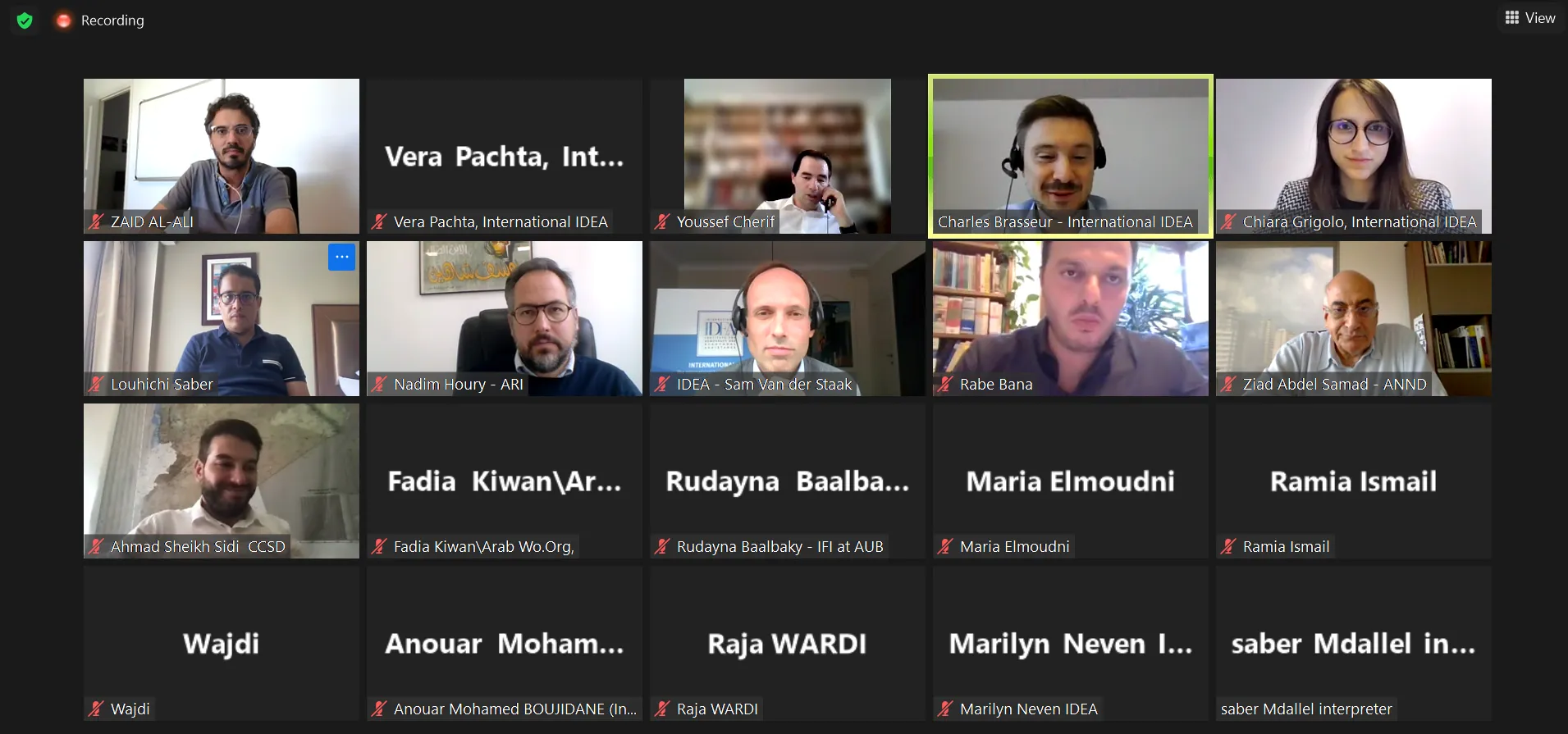How does civil society in the Middle East and North Africa view the EU´s external democracy policy in the region?

When looking at data on democratic performance over time, one might see the Middle East and North Africa region (MENA) as the least democratic in the world. Considering the 20 countries it is composed of, 7 of them have never experienced a change in regime type and can therefore be considered as the most enduring authoritarian regimes on a global scale.
During the second online dialogue organized in the framework of the Sweden EU-Presidency & the Democracy Agenda programme, civil society representatives from the MENA region discussed the main democracy trends in their countries and the role that the European Union plays.
Assessing how the EU is perceived as an actor in the region cannot be done without taking into account the local, regional and global geopolitical contexts. The war in Ukraine has also impacted the geopolitical configuration in the MENA region, where China, Russia, Saudi Arabia, Turkey and the United States play an important role. In a context of existing crises (the conflict in Syria to name but just one) but also new geopolitical ones, the EU and its Member States must navigate a difficult landscape that they often approach with different agendas.
The expectations of the democracy civil society actors in the MENA region, however, are many and require the EU and its Member States to strategically rethink their political role and coordinate better. In terms of democracy support, this would entail moving from technical assistance to more targeted, localized and better communicated country priorities, focusing on civic freedoms, human rights and social justice beyond legislative changes, helping to change the mindset of people.
Civil society representatives from the MENA region acknowledged the efforts that the EU is making to connect with them, especially via structured dialogues. However, the heavy decision-making machinery and the complex intertwining of interests among EU policies and actors, risk turning EU-led consultations into mere listening exercises. A coherent and consistent approach from the EU and its Member States and a rethinking of the toolbox used for democracy support through a meaningful and diverse engagement of civil society and more flexible programming could better help domestic efforts for democratization.

SPP-MENA online dialogue, 20 September 2022. Image credit: International IDEA.
This dialogue is part of a series of regional dialogues to gather the views of Global South partners on the EU´s external democracy policy. For more information about the Sweden EU Presidency & the Democracy Agenda and its objectives, consult our webpage.




